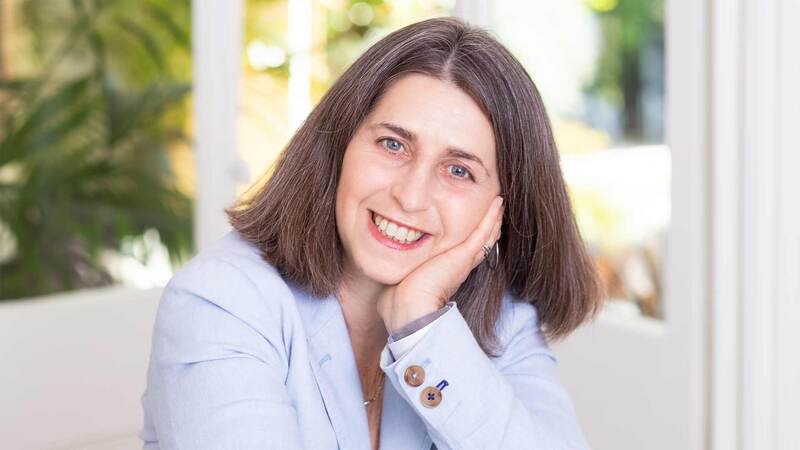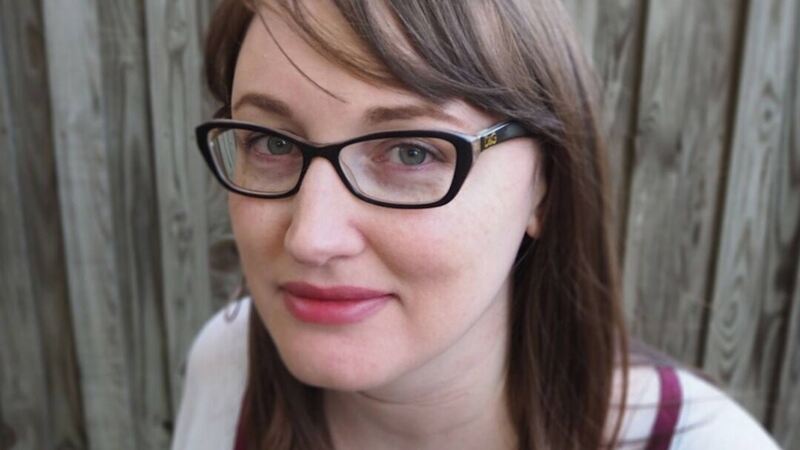You are viewing your 1 free article this month. Login to read more articles.
Chakrabarti welcomes Year of Publishing Women in 2018
Shadow attorney general Shami Chakrabarti has expressed support for Kamila Shamsie’s proposal for a Year of Publishing Women in 2018 ahead of the publication of her feminist call to arms, in favour of "radical solutions” to address the pervasive problem of gender inequality worldwide.
Shamsie originally proposed a Year of Publishing Women to coincide with the 100th anniversary of women getting the vote, following research that major literary prizes were less likely to be awarded to women writers or to books focusing on the experience of women. At the time, the book trade greeted Shamsie’s suggestion with caution, with Curtis Brown agent Jonny Geller saying he would “support any initiative to promote women’s fiction and new voices but never at the expense of another writer’s.” Three years on, both Sheffield-based independent presses And Other Stories and Tilted Axis Press have confirmed they intend to follow through on their commitment to delivering on the “much needed” initiative to help "reset the gender imbalance" by publishing only women writers for one year. However, it appears they are the only publishing houses to join in on the intiative.
Chakrabarti, whose book Of Women, out in October, addresses issues of gender inequality across the spectrum, from the number of women reaching board level to FGM, said her opinion on affirmative action in general had changed over the years. Facing up to the fact we are “not living in a meritocracy” but a “deeply unfair” society was part of this, she said.
"This is a journey I’ve been on in my life. When I was in my early 20s, I took the classic liberal position that affirmative action, positive discrimination and quotas were a bad idea; they were unfair and discriminatory and you don’t want to be considered a token. My life experience has really changed my mind about that. Firstly, we are not living in a meritocracy. I had a debate with a Conservative peer not long ago during the general election - a woman peer - who said we won't support it because we believe in a meritocracy. I looked at her and thought, 'I know you don’t believe the status quo (for women) in this country... represents meritocracy'; it doesn’t. It represents thousands of years of entrenched discrimination at every level – social, economic, institutional, legal. The first thing is realising just how deeply unfair this is. The second is I’ve seen it work. You bring it in for a time limited period, and you change the dynamic. You get a critical mass of women around a table where there were previously no women and you can change that atmosphere and that culture long term."
Addressing the issue of inequality in publishing specifically, she said the proposal for a year of publishing women was “a great idea”. She added, if nothing else, it was important to have “kickstarted the debate” around representation of female voices by the industry.
“I think it’s a great idea. Even putting forward that idea kickstarted a debate," Chakrabarti said. "And even if everybody didn’t take it up, the fact that we’re still talking about it now suggests there was something to it. Why not? It’s just one year, for goodness sake. Given how long it takes to write and to publish, it really shouldn’t be too much of a hardship for anyone.
"As a judge of the Baileys Prize, I had debates with people about why we have to have a women’s prize. For years, whenever it would get to that time of year, there would always be a grumpy male journalist from a right-wing newspaper launching a diatribe again the Baileys Prize and that it’s ‘political correctness gone mad'. But it only came about because women weren’t getting their shout, weren’t being heard, weren’t being published as much, despite all the women who work in publishing."
Publisher Stefan Tobler at And Other Stories said that Shamsie's Year of Publishing Women had given the press the impetus to address trends sidelining women writers which he said were particularly “acute” in fiction in translation. It also made the press appreciate the dearth of literary manuscripts by women of colour being pushed by agents.
"It really came at a time when we had a desire to do something that would make a difference on our list in the world of translated fiction and more widely. We thought it was an issue and it was something we wanted to do something about," said Tobler.
"As Kamila Shamsie pointed out there is an issue in general with women writers not being fairly given long-term recognition, but in translated fiction there is a particularly acute problem ... There are a few reasons; one is that there are places in the world where feminism has not happened as much as in the UK and North America. I think it's fair to say there are women writers in some parts of Latin America, for instance, who are more likely to be ignored. So the authors being suggested to us are often then [less likely to be women]. And I guess this is an issue other publishers of translated fiction have also found."
He added: "Lots of women writers submit directly to us, but it was eye-opening how much we have had to push many agents to send us more literary writing (fiction, memoir and creative non-fiction) by women, and in particular women of colour. And our message to agents is still: please send us more. We still have slots free for English-language writers in 2018."
Reception to the press' involvement in Shamsie's challenge has been mixed. Much like the Jhalak Prize for Book of the Year by a Writer of Colour, a prize championing writers of colour in the interests of diversity, And Other Stories revealed it was also subjected to a complaint made through an MP to the Equalities Commission, which was subsequently dropped.
Despite this experience Tobler said And Other Stories had "absolutely" no regrets about accepting the challenge, calling it "a brilliant chance for us to rebalance things and think about the issue in a more focused way". None of its authors had decided against publishing with And Other Stories because of the challenge, Tobler said, on the contrary it has received "near universal support" from customers.
Tobler went on to call it “a shame” that presses of similar sizes had not supported the drive. "I was a bit [surprised]," he said, that more publishers had not taken up the challenge.
"Obviously it's a constraint and you can see why people wouldn't necessarily want a constraint. But, as we know in literature, having a constraint can often lead to an increase in creativity. I think if you are our size, it is fairly easy to massage the schedule, so if you have male authors whose books would have appeared on 2018, they can appear before or after.
"It's a shame others didn't give it a go, I think."
In 2018, And Other Stories, which publishes 10-12 books a year, has 10 books by women in translation scheduled, with just two more slots for English language titles by women left to fill.
The press kicks off its Year of Publishing Women in January with The Unmapped Country, newly unearthed stories and part of an unfinished novel by late cult 1960s author Ann Quin, continuing into February with a Tim Parks' translation of European "living legend" Fleur Jaeggy's novel Sweet Days of Discipline. April meanwhile sees two European novels: in time for the London Book Fair's Baltic focus, Fish and Dragons by Lithuania's Undinė Radzevičiūtė, and a Catalan novel, Brother in Ice by Alicia Kopf, on St George's Day/ Sant Jordi Day.
The publication of Chakrabarti's Of Women coincides with a resurgence of feminism that has seen Naomi Alderman's The Power (Viking) awarded the Baileys Prize and the publication of books such as MP Jess Phillips' book, Everywoman (PRH) and The Women Who Shaped Politics by Sophie Ridge, as well as the TV adaptation of Margaret Atwood’s 1985 dystopia The Handmaid’s Tale. In children’s publishing there has also been a flurry of recent commissions with a “feminist” edge, among these, Moxie (Hachette Children’s Group), a "timely and empowering" feminist YA novel from US author Jennifer Mathieu, out in September; Asking for It author Louise O’Neill's feminist retelling of The Little Mermaid from Scholastic, out May 2018; The Exact Opposite of Okay (Egmont), a book challenging sexism and double standards by screenwriter Laura Steven, out March 2018; and crowd-funded feminist storybook Goodnight Stories for Rebel Girls (Particular Books).


















